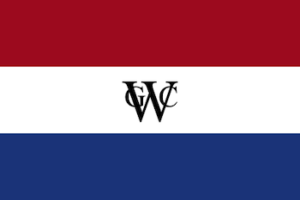
*The Dutch West India Company was founded on this date in 1621. They were a chartered company of Dutch merchants, slave traffickers, and foreign investors.
Among its founders were Willem Usselincx and Jessé de Forest. The Republic of the Seven United Netherlands granted it a charter for a trade monopoly in the Dutch West Indies. It gave jurisdiction over Dutch participation in the Middle Passage slave trade, as well as Brazil, the Caribbean, and North America. The company could operate in West Africa (between the Tropic of Cancer and the Cape of Good Hope) and the Americas, which included the Pacific Ocean and the eastern part of New Guinea.
The charter's intended purpose was to eliminate competition, particularly from Spanish or Portuguese, between the various trading posts established by merchants, including Fort Amsterdam. The company became instrumental in the essentially ephemeral Dutch colonization of the Americas (including the New Netherlands) in the seventeenth century. From 1624 to 1654, during the Dutch-Portuguese War, the GWC held Portuguese territory in northeast Brazil; however, they were ousted from Dutch Brazil following fierce resistance.
After several reversals, GWC reorganized, and a new charter was granted in 1675, primarily due to the strength of the Atlantic slave trade. This "New" version lasted for over a century, until after the Fourth Anglo-Dutch War, when it lost most of its assets. It went defunct on January 1, 1792.